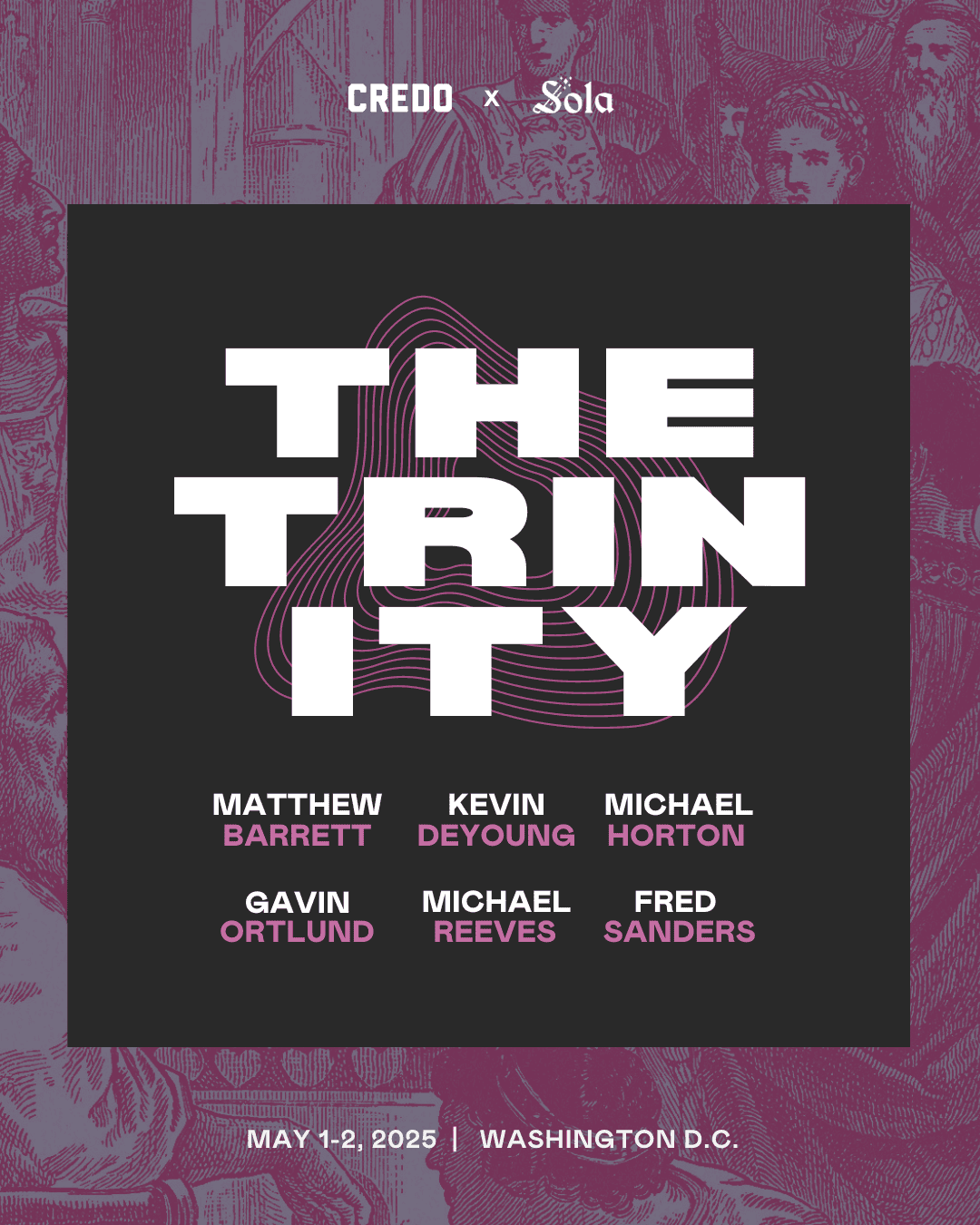
Don’t Leave the Master of Divinity Degree Behind
Last week at religionnews.com, an article was published titled, “More seminary students leave the Master of Divinity behind.” The article traced recent trends away from “the gold standard for church leaders—the Master of Divinity” toward the two-year Master of Arts. The author of the article, Yonat Shimron, reported that a “new projection from the Association of Theological Schools, the main accrediting body for seminaries in the U.S. and Canada, finds that the number of seminary students enrolled in various Master of Arts degrees will likely exceed the number of Master of Divinity students by 2021.” The number of students in the Master of Divinity degree has decreased by nearly 7,000 students over the last decade. For a history of the Master of Divinity degree in theological education, see Dr. Jason Duesing’s article, “Replanting an Oak: Seeing the MDiv to the Century Mark.”
In responding to the article at Religion News, my aim is not to express disappointment with schools that offer a Master of Arts degree (I attend such a school!) or with students that are in or have completed such a degree. Statistics from Training Leaders International should sober the discussion:
- In the 2.2 million evangelical churches worldwide, 85% are led by pastors with no formal theological training.
- In the 10/40 window, 5 million pastors have no access to any kind of formal biblical training.
There is a theological famine. Thus, any conversation about “this degree versus that degree” ought to be prefaced with gratitude, since there are scores of opportunities in North America to be theologically educated—opportunities our brothers and sisters around the world need and would sacrifice to have.
Furthermore, this article is not a call to do away with the Master of Arts degree. I understand that for certain persons in certain situations, the Master of Arts degree has and will serve ministers well.
Finally, men can be God-glorifying, people-serving, Bible-expositing pastors without a formal degree. Pastors need to be theologically educated, not formally educated. The role of the local church in the preparation of the minister should not be minimized. Some churches may be able to provide an equivalent education to an institution and for that, we should rejoice. Institutions serve the church, not the other way around.
These caveats aside, here are two reasons why theological institutions and their students should not leave the Master of Divinity degree behind.
The Greatest Need of the World
First, the MDiv degree should not be left behind because faithful ministers, specifically faithful preachers, are the greatest need of the world. Consider the observation of Martyn Lloyd-Jones: “The most urgent need in the Christian Church today is true preaching; and as it is the great and most urgent need in the Church, it is obviously the great need of the world also.”[1] If true preaching is the great need of the church and the world, the main question becomes what kind of training prepares men to engage in such preaching. The call of every pastor is straightforward: “Do your best to present yourself to God as one approved, a worker who has no need to be ashamed, rightly handling the word of truth” (2 Timothy 2:15). The qualified elder “must hold firm to the trustworthy word as taught, so that he may be able to give instruction in sound doctrine and also rebuke those who contradict it” (Titus 1:9). God-called men do not automatically possess such skills, they must be cultivated. The traditional MDiv degree has those qualifications in mind and has been known throughout recent history as the degree which seeks to provide the ministry toolkit for a lifetime of faithful ministry. If a school’s MDiv degree does not prepare their students to “rightly handle the word of truth” and “give instruction in sound doctrine,” the curriculum needs to be reformed.
In many seminaries, however, reform is taking place in the opposite direction. The Religion News article observed, “the MDiv has many seminaries realizing their curricula may rely too heavily on the traditional academic subjects such as biblical studies, theology, Christian ethics, Hebrew and Greek, and that they lack a more intentional emphasis on leadership formation.” It is a scary thought to conceive of the Church with a generation of ministers unskilled in biblical studies, biblical languages, hermeneutics, and theology. The Church stands or falls based on “keeping the faith once for all delivered to the saints” (Jude 3). In many cases, forgoing a rigorous theological education means not possessing valuable ministry tools, such as the biblical languages. Whatever training option the prospective pastor pursues, that training must include a robust deposit of skills in dealing with the text of Holy Scripture.
Training, formal or otherwise, does not guarantee competency or qualification for the pastorate. No degree can guarantee faithfulness. But going through a program like the MDiv should expose ministers on invaluable historical, theological, biblical, and practical matters. Here’s the bottom line: most prospective pastors need a formal program of study to advance in ministry preparation. The traditional MDiv has been a staple program for such preparation.
The Greatest Investment of Your Life
Second, the MDiv degree should not be left behind because the tools it provides outweigh the time it takes and the debt it incurs. Religion News recorded student debt as a caution against the MDiv: “The crisis we have is that if you’re graduating with a Master of Divinity you’re likely graduating with some significant debt” (Cameron Trimble, CEO of the Center for Progressive Renewal). Debt should not be minimized. For those pursuing overseas missions, whether you have debt and how much becomes all the more important. Dr. Jason Allen, president of Midwestern Seminary, has written an article on Nine Questions to Ask Before Choosing a Seminary, one of which is “How much does it cost?” This is a valid question and one that should be asked.
In bringing up the money it costs to gain a rigorous theological education, my question is whether or not we have pondered the privilege of ministry and the preciousness of the Word in ways that compare to the financial sacrifice of attending law or medical school? Do we believe that time spent knowing and enjoying God through biblical and theological study is the greatest investment of our lives? Should we not be willing to incur minimal debt for the sake of being equipped in ministry? Ministers are soul surgeons and should prepare like such.
Recall how Isaiah records the profit of the Bible: “For as the rain and the snow come down from heaven and do not return there but water the earth, making it bring forth and sprout, giving seed to the sower and bread to the eater, so shall my word be that goes out from my mouth; it shall not return to me empty, but it shall accomplish that which I purpose, and shall succeed in the thing for which I sent it” (Isaiah 55:10–11). No investment compares to that of biblical and theological study. When the Bible is rightly preached, it always succeeds.
The solution to the “crisis of debt” incurred in the MDiv is not to bypass the MDiv but to think of creative ways to pay for it and to consider attending a school that is more affordable. Midwestern Seminary has a Timothy Track MDiv option, where students receive ministry experience in the local church and are awarded a scholarship that pays for half of their tuition for the first year. Southern Seminary just announced the Evening M.Div., a four year Master of Divinity degree offered entirely at night, affording students the opportunity to work during the day. Students who are members of a Southern Baptist Church and attend one of the six Southern Baptist seminaries are afforded a 50% discount on their tuition through the cooperative program. There are ways to pay for school and students should explore them.
As a minister, you want the tools that will give you the greatest capacity to preach the Bible. Where you find those tools is not the issue. The issue is whether you possess those tools. For thousands of ministers, the MDiv degree has accompanied the local church in providing tools for ministry. If it continues to do so, the MDiv should not be abandoned, either by institutions or their students, because true preachers are the greatest need of the world and theological education, for those called to ministry, is the greatest investment one could make.
[1] Martyn Lloyd-Jones, Preaching and Preachers (Grand Rapids, MI: Zondervan, 1971), 9.

